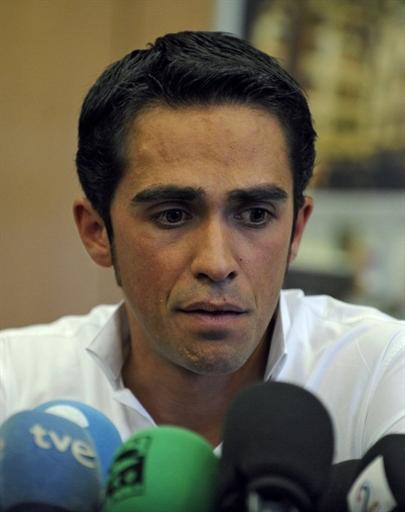L’Équipe raises new doubts over Contador
French paper suggests there could be evidence of blood doping
The latest race content, interviews, features, reviews and expert buying guides, direct to your inbox!
You are now subscribed
Your newsletter sign-up was successful



French sports paper L’Équipe has reported that tests undertaken on Alberto Contador’s urine sample from the Tour de France have revealed the presence of a plastic component that is found in blood transfusion bags. According to the paper, this could indicate that the three-time Tour winner underwent a blood transfusion before being undergoing a drug control on July 21 that revealed the presence of Clenbuterol.
The paper says that investigators working on Contador’s case at the laboratory in Cologne have tested the Spaniard’s urine using a method developed by Dr Jordi Segura at a laboratory in Barcelona. The method enables the detection of a plastic substance that derives from bags used to transport blood.
According to L’Équipe, this substance, known as di(2-ethylhexyl), has been found in Contador’s urine. This suggests that Contador could have received a transfusion of blood that he gave earlier in the season and which contained traces of Clenbuterol.
L’Équipe adds that Segura’s method, details of which were published in 2009, has not yet been validated by the anti-doping authorities and will require further testing before it can be ratified.
The investigators in Cologne are reported to be going through the Astana rider’s blood passport in minute detail in order to assess whether there are any anomalies. L’Équipe says that “the passport of the Spanish cyclist, which is chaotic at times, has provided no reason for suspicion”.
The UCI and the World Anti-Doping Agency have refused to comment on L’Équipe’s story.
The latest race content, interviews, features, reviews and expert buying guides, direct to your inbox!

